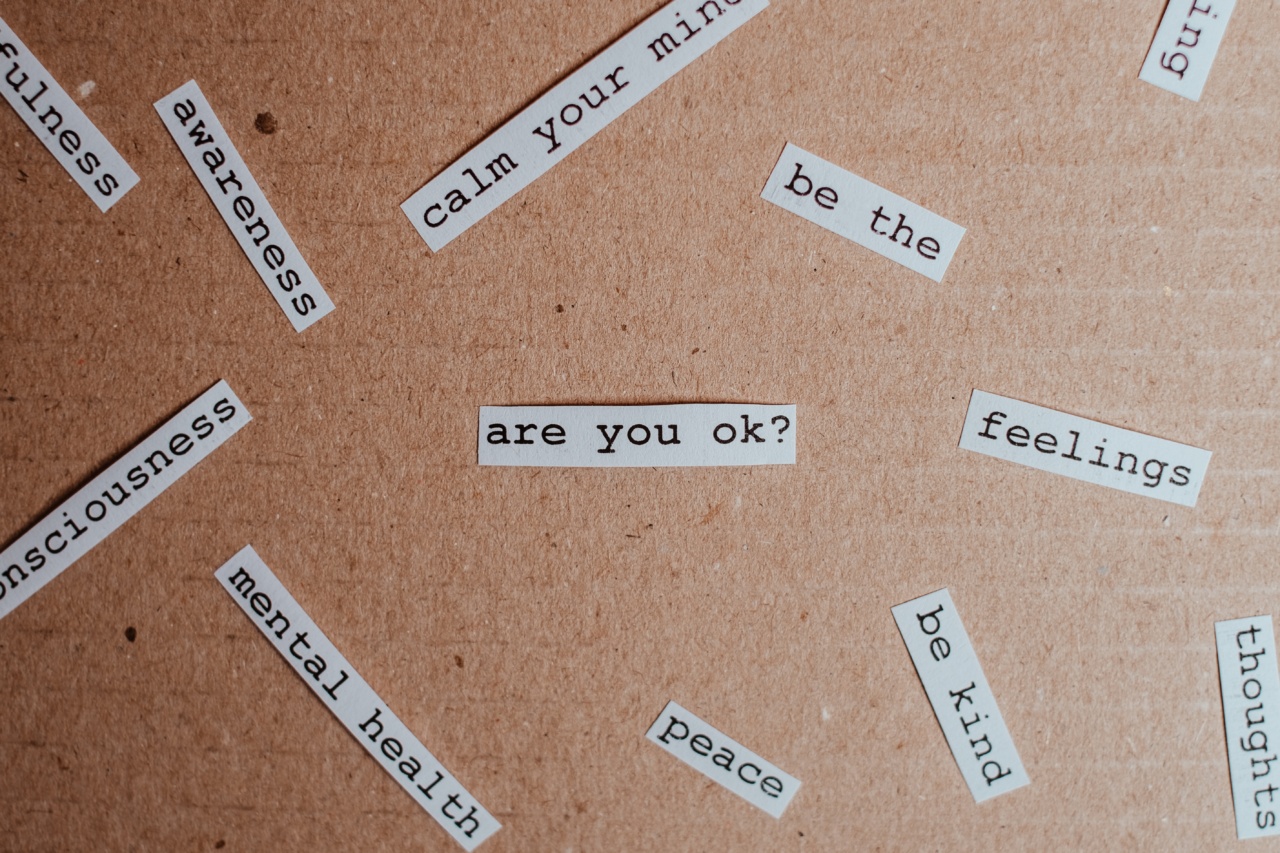Love and emotions can often be confusing and overwhelming. It’s not always easy to decipher whether the feelings we have for someone are genuine or simply a fleeting infatuation.
However, by applying a rational approach, you can gain clarity and better understand your emotions. Here are some steps you can take to determine if you truly have feelings for someone:.
1. Assess Your Emotional State
Take a moment to evaluate your overall emotional state.
Are you generally happy, content, and centered in your life? Or do you find yourself constantly thinking about this person and feeling a deep emotional connection? If your emotional well-being seems to depend heavily on their presence in your life, it could be an indication of deeper feelings.
2. Identify the Source of Attraction
Examine the reasons for your attraction to this person.
Is it based solely on their physical appearance or charm, or do you also appreciate their personality, values, and interests? Genuine feelings tend to go beyond surface-level attraction and encompass a deeper connection that transcends looks.
3. Reflect on Compatibility
Consider how well you align with this person on various aspects of life, such as values, goals, and future plans. Compatibility is an essential element of lasting romantic relationships.
If you find yourself naturally fitting together with this person on multiple levels, it suggests that your feelings may be genuine.
4. Analyze Your Interactions
Reflect on your interactions with this person.
Do you feel a sense of ease and comfort when you’re around them? Do you enjoy spending time together, engaging in meaningful conversations, and sharing common interests? Positive and fulfilling interactions are signs of a potentially deep emotional connection.
5. Consider Their Impact on Your Life
Assess the impact this person has on your overall well-being and personal growth.
Do they inspire you to become a better version of yourself? Do they support your dreams and aspirations? If their presence in your life positively influences you and helps you grow, it’s a good indication that your feelings are genuine.
6. Give It Time
Allow time to pass and observe how your feelings evolve. Sometimes, what initially appears to be intense infatuation can fade over time, while genuine feelings tend to deepen and grow stronger.
Patience and observation are key in determining the authenticity of your emotions.
7. Seek Emotional Independence
Avoid becoming too dependent on this person for your emotional well-being. It’s important to maintain a certain level of autonomy and emotional independence within a relationship.
If you find yourself unable to function or be happy without this person, it might be a sign of emotional dependency rather than genuine love.
8. Seek Input from Trusted Friends or Family
Reach out to your close friends or family members whom you trust and respect. Share your thoughts and feelings about this person with them.
Sometimes, others can provide valuable insights and perspectives that can help you gain a clearer understanding of your emotions.
9. Assess Your Reaction to Their Absence
Take note of how you feel when this person is not around.
Do you miss their presence, feel a void, or experience a sense of loneliness? If their absence affects you significantly and you long for their company, it could signify a genuine emotional attachment.
10. Trust Your Gut
Ultimately, trust your instincts and intuition. Your gut feeling often provides valuable guidance and insight into your true emotions.
Pay attention to how you genuinely feel when you think about this person or imagine life without them; your inner voice can guide you towards the answer.
Conclusion
Understanding and deciphering your emotions can be challenging. By applying a rational approach, you can gain a clearer understanding of whether your feelings for someone are genuine or based on fleeting infatuation.
Remember to assess your emotional state, identify the source of attraction, reflect on compatibility, analyze your interactions, consider their impact on your life, give it time, seek emotional independence, seek input from trusted friends or family, assess your reaction to their absence, and trust your gut. With these steps, you can navigate your emotions and make more informed decisions about your romantic relationships.































